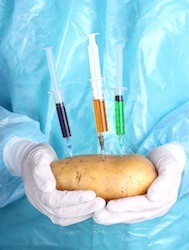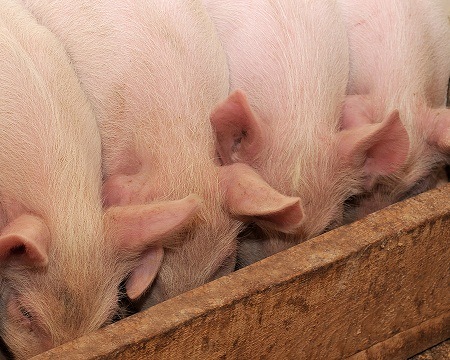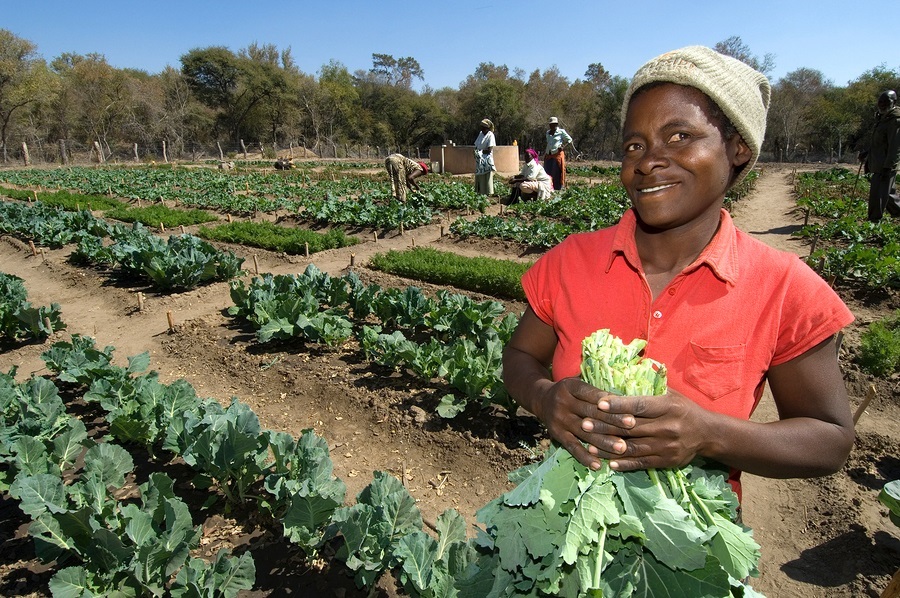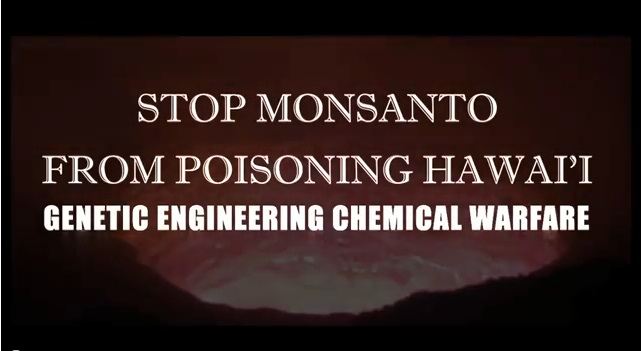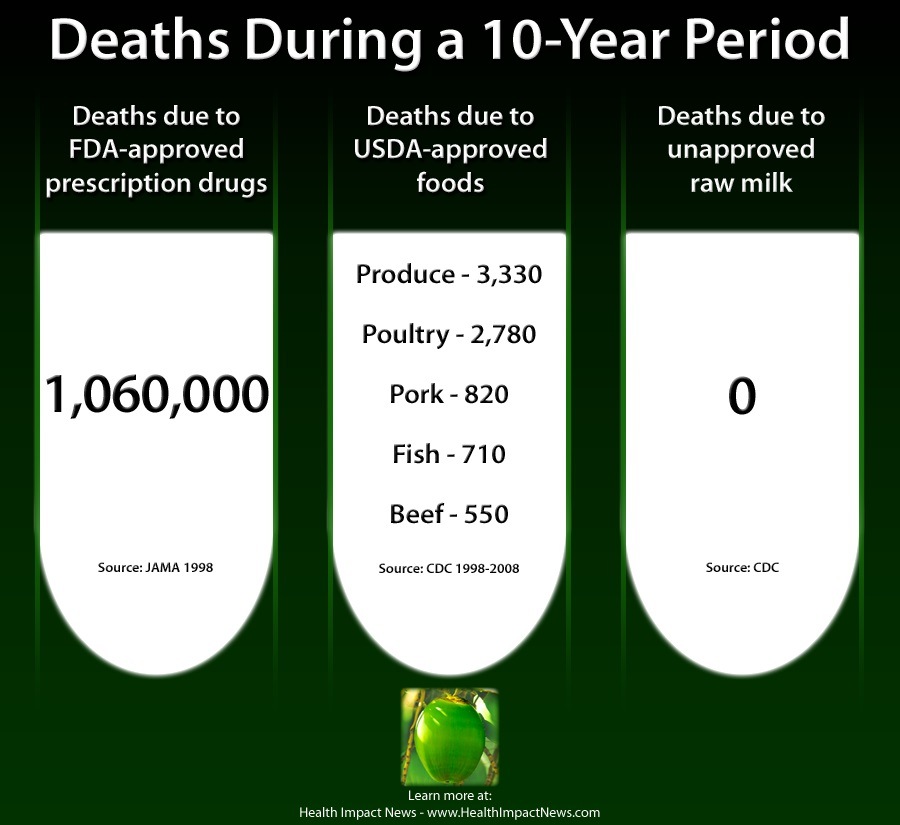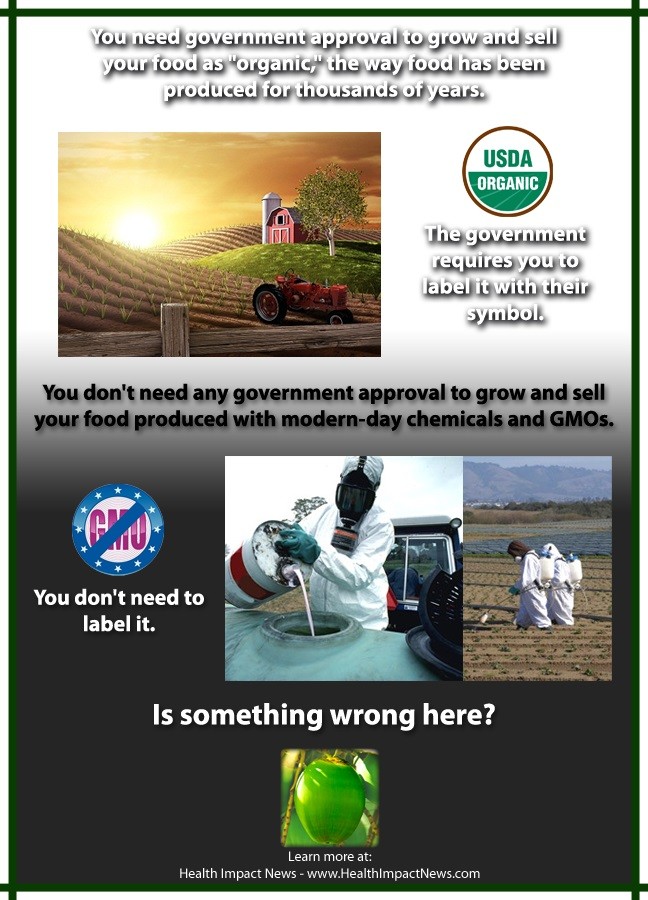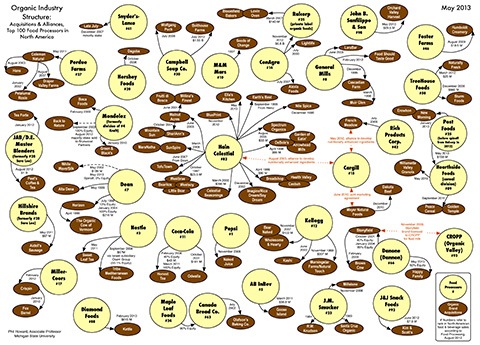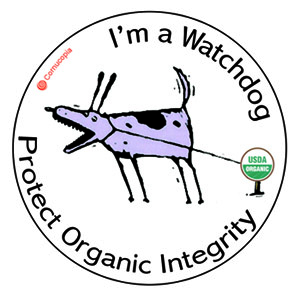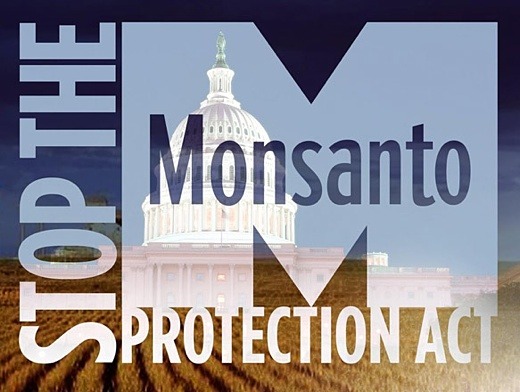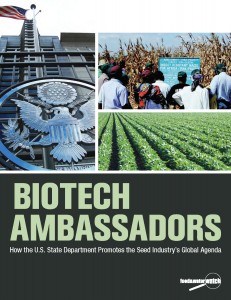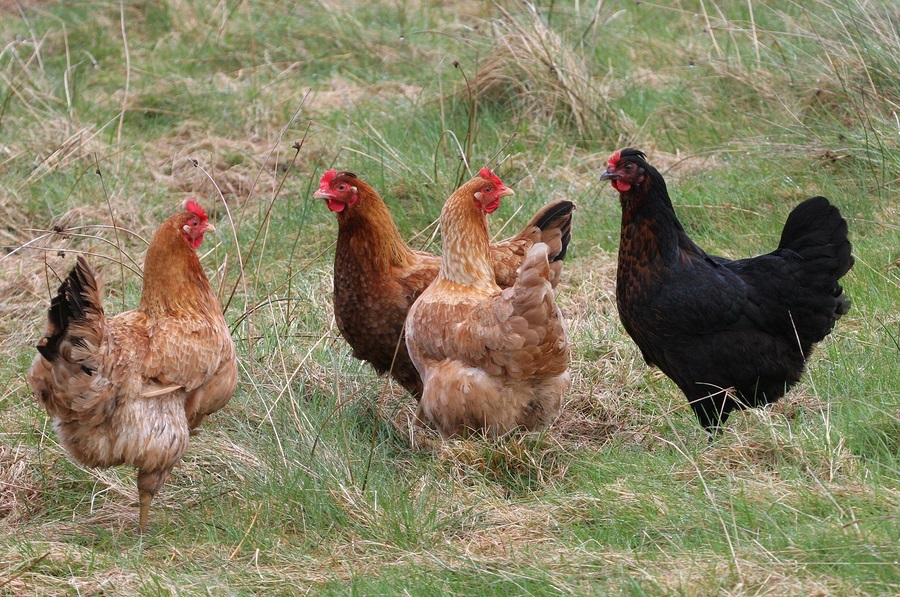News regarding the dangers of GMOs and biotech, and the advantages of organic sustainable agriculture.
Keep Genetically Engineered Potatoes Off Supermarket Shelves
The J.R. Simplot Company, giant potato supplier for McDonald’s, has spent years working on the perfect potato. Its new genetically engineered trait (which will be offered in five different varieties of potatoes) is up for USDA approval. These potatoes will be used as frozen fries, potato chips and shoestrings, which make up approximately 50 percent of the potato market in the United States. The USDA will be seeking comments until July 2nd.
Study: GMO Feed Harmful to Pigs
A groundbreaking new study shows that pigs were harmed by the consumption of feed containing genetically modified (GM) crops. GM-fed females had on average a 25% heavier uterus than non-GM-fed females, a possible indicator of disease that requires further investigation. Also, the level of severe inflammation in stomachs was markedly higher in pigs fed on the GM diet. The research results were striking and statistically significant. Pigs with these health problems end up in the food supply. Pigs have a similar digestive system to people, so there is a need to investigate if people are also getting digestive problems from eating GM crops.
Beekeeping Industry ‘Doomed’ – Destruction of Food Supply Soon to Follow?
California nearly lost its almond crop this year, due to a lack of bees. Once a year, in late winter, 1.5 million bee hives from around the country are delivered to these orchards where the bees’ pollination efforts take place over the course of just a few days. It’s the largest mass-pollination effort in the world. This year, however, the unthinkable happened. Many of the 6,000 orchard owners simply could not find enough bees to pollinate their almond trees, at any price. 80 percent of the world’s almonds come from California, and almonds are the number one agricultural product in California. A general consensus among beekeepers is that the bee die-offs are most definitely related to toxic chemicals. Increasingly, a systemic type of pesticide called neonicotinoids is being blamed for bee die-off’s. Neonicotinoids are now used on most of American crops, especially corn. This newer class of chemicals is applied to seeds before planting, allowing the pesticide to be taken up through the plant’s vascular system as it grows. As a result, the chemical is expressed in the pollen and nectar of the plant.
African Groups Reject G8 Biotech Food Plan as ‘Colonialism’
African farmers’ movements and civil society groups have rejected the G8’s New Alliance for Food Security and Nutrition as part of a “new wave of colonialism” targeting their food systems for corporate profit. The African statement accuses the G8 of supporting multinational corporations like Yara, Monsanto, Syngenta, Cargill in their quest to privatise African agriculture: “Private ownership of knowledge and material resources (for example, seed and genetic materials) means the flow of royalties out of Africa into the hands of multinational corporations.” The statement calls for alternative strategies to protect sustainable agricultural techniques already in development across Africa which put household food security before corporate profits.
Hawaii War Zone: GMO Biotech versus Korean Natural Farming
Just as Hawaii was the focal point of the U.S. conflict during World War II, so today it appears that it is the focal point in the agricultural war of the 21st century. Hawaii today is the centerpiece for two vastly contrasting methods of producing food: the development of genetically engineered seeds and the development of Korean Natural Farming. Hawaii, with its isolated and pristine ecosystems, is a perfect testing ground for the biotech's testing and development of genetic engineering. The residents of Hawaii, though few in number, have observed and experienced the results of such testing. On the other side of the battle are farmers who have discovered a simple, traditional method of farming from Korea: Korean Natural Farming. Korean Natural Farming is about culturing a healthy climate for biology to thrive via indigenous micro-organisms.
Connecticut Passes First GMO Labeling Bill in U.S.
Today’s GMO labeling agreement is historic and we are proud to have played a role in its development. YOU should all be proud. Connecticut will now set the standard for states around the country to follow. We are grateful to all who worked to make this possible. Thank you to all our champions in the House and the Senate.
Stand with Family Farmers — Protect Them from a Tax Benefiting Agribusiness
This amendment to the Farm Bill allows farmers to voluntarily choose whether or not they pay into Federal “checkoff” programs. Anytime a farmer sells a steer, a gallon of milk, an egg, bushel of corn or soybeans, or any other covered commodity, the producer is required to pay a fee to industry-run organizations for marketing campaigns. This would allow organic farmers and processors to decide whether they pay into the conventional check-off programs and or use this money to benefit organic and local production.
Maine Department of Agriculture Actions Prove Safety of Raw Milk is NOT the Issue in Attacking Raw Milk Farmers
Raw milk safety is NOT the issue. It's all about government control. If safety were truly the issue, then why is the Maine Department of Agriculture allowing one farm to sell raw milk to the public for a simple $25.00 license, while denying a similar small farm who was following a local ordinance that did not require a license? Isn't time the anti-raw milk antagonists stop hiding behind the raw milk "safety" issue? The raw milk issue is not a safety issue. It is about government control. As the recent jury who acquitted Wisconsin farmer Vernon Hershberger from being guilty of providing milk to private club members without a state-approved license shows, the public is getting fed up with the government stance over licensing, and their treating peaceful farmers like illegal drug criminals. It is time for a Food Freedom Revolution!
Unapproved GMO Wheat Found In Oregon
The USDA announced today that they had found the presence of GMO wheat on a farm in Oregon. Monsanto was authorized to field test a variety of GMO wheat from 1998 to 2005, but it was never approved. Since these field tests occurred in 16 states, there is no telling how far and how wide the contamination may have occurred. An Oregon State University scientist made the discovery and reported it to the USDA. The USDA, of course, claims that there are no safety concerns. But in the same breath, they make it clear that the party responsible for the contamination is liable for criminal prosecution and a $1 million fine.
Updates on GMO Labeling Bills at State and Federal Levels
It’s good news/bad news in Connecticut for GMO labeling advocates this week, where the state Senate voted 35-1 in favor of SB 802, a GE labeling bill that ANH-USA helped draft. After the Senate passed the bill, the Connecticut House accepted an amendment from Governor Dan Malloy and Speaker Brendan Sharkey, despite strong protest from advocates, that weakened the bill. On the federal level, the Sanders amendment to the Agriculture Reform, Food, and Jobs Act of 2013, which would have permitted states to require the labeling of GMOs, failed with a vote of 71-27.
Who Owns Organics?
The latest version of Who Owns Organics has been released by Dr. Phil Howard, an Assistant Professor at Michigan State. Dr. Howard teaches in the University’s Community, Agriculture, Recreation and Resource Studies program. The latest update now includes the top 100 food processors in North America. According to Dr. Howard, acquisitions and changes in the organic industry have been picking up this year. Hain Celestial has acquired Ella’s Kitchen, and Danone acquiring Happy Family just this month. And Hain Celestial’s CEO stated earlier this year that they intend to acquire several more firms in the range of $25 to $30 million.
USDA violates the Organic Foods Production Act
Political corruption and power grabs usually happen behind closed doors. The Cornucopia Institute has consistently called for more transparency at the USDA’s National Organic Program, but quite frankly, this power grab, in broad daylight, is unexpected. The National Organic Standards Board (NOSB), the citizen panel charged by Congress to determine which synthetics are allowed in organic food production, voted to prohibit the use of carrageenan in organic infant formula, to prohibit the use of synthetic microcrystalline cellulose as a food ingredient, and set a deadline for reviewing synthetic and potentially harmful ingredients in previously approved pesticide formulations. By law, the USDA cannot allow a synthetic material in organics unless it has been approved by the NOSB. But the agency seems completely uninterested in following the law governing organics, the Organic Foods Production Act of 1990. The USDA’s proposed rule, released on May 3, disregards the NOSB’s decisions entirely on these three important topics. Please send a comment to the USDA—let them know that they are acting outside their legal authority and that we will not stand by quietly while they protect corporate interests rather than the health of consumers and the environment.
How to Grow Your Own Food in Small Spaces
One of the major benefits of growing your own food is that you have complete control over the end product, from soil composition to chemical exposure. Anyone can also produce their own food. If you have a back yard, you’re blessed indeed. But apartment dwellers can also grow fresh produce.
Is Raw Grass-Fed Milk Safer Than Pasteurized? Wisconsin Raw Milk Farmer Acquitted on 3 Charges
As you're probably aware of by now, there's a war being waged against raw milk. While raw milk sales or distribution are legal in many US states, and progress has been made toward improving access, there’s strong opposition to this trend. Each victory is hard-won. Our federal health agencies claim to be protecting us from this 'dangerous' product. As you walk down the aisles of junk food at your local grocery store, pass by the liquor section, and watch individuals buying cartons of cigarettes - you have to wonder is this really about our personal safety or the safety of the milk industry. In the just concluded trial of Wisconsin raw milk farmer Vernon Hershberger, a jury found him not guilty of operating a retail store without a license, allowing him to continue selling food to his private club members.
Repeal the Monsanto Protection Act!
The Monsanto Protection Act is set to expire at the end of September, with the temporary spending measure, but might be rolled in to the next one if we don’t act now. Senator Jeff Merkley is planning to introduce an amendment to the upcoming Senate Farm Bill which would repeal the provision. If we can we get rid of it now, it would be a signal from the American people that nothing like this sneak provision, stuck without warning into must-pass, unrelated legislation, should never again be attempted.
Research Reveals Previously Unknown Health Risks from GMO Pesticide
The more we learn about genetically engineered (GE) foods, the clearer the dangers become. While Monsanto insists that Roundup is safe and “minimally toxic” to humans, new research tells a different story altogether. This new study argues that glyphosate residues, found in most commonly consumed foods in the Western diet courtesy of GE sugar, corn, soy and wheat, “enhance the damaging effects of other food-borne chemical residues and toxins in the environment to disrupt normal body functions and induce disease.”
Biotech Ambassadors: How the U.S. State Department Promotes the Seed Industry’s Global Agenda
This report provides yet another distressing example of how Monsanto and its ilk have a stranglehold over the global food supply and how it does everything it can — including influence U.S. diplomacy — to silence people who only want to make informed choices about the food they feed their families. An overwhelming number of farmers in the developing world reject biotech crops as a path to sustainable agricultural development or food sovereignty. The biotech agriculture model using costly seeds and agrichemicals forces farmers onto a debt treadmill that is neither economically nor environmentally viable. Biotech Ambassadors: How the U.S. State Department Promotes the Seed Industry’s Global Agenda examines more than 900 State Department diplomatic cables from 2005 to 2009 and details how the U.S. State Department lobbies foreign governments to adopt pro-agricultural biotechnology policies and laws, operates a rigorous public relations campaign to improve the image of biotechnology and challenges commonsense biotechnology safeguards and rules — including opposing genetically engineered (GE) food labeling laws.
Raw Milk Farmer Acquitted on 3 of 4 Charges
Things are heating up in Baraboo, Wisconsin as a long awaited food rights trial approaches. Raw milk drinkers are outraged that Wisconsin DATCP is bringing criminal charges against a farmer who serves a private buying club. Do citizens have a right to contract with a producer and grow food to their own standards?
Maine Food Sovereignty Local Ordinances Get Boost from State
Small-farm advocates in Augusta celebrated a key political victory after a legislative committee gave the green light to several bills that would relax state oversight and open local markets to unlicensed farmers and raw milk producers.
Raising Backyard Chickens Is Easier Than You Think
Admit it. You’ve been tempted to get chickens. They’re cute, you get fresh eggs—what’s not to like? But there’s a major intimidation factor, since it’s not like you can just swing by your neighborhood pet store to pick up chicks and supplies. Raising backyard chickens isn’t very difficult once you get everything set up.




